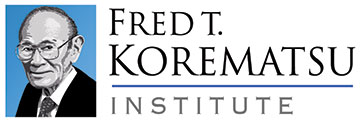Asian Pacific American Heritage Month 2025
May is Asian Pacific American Heritage Month (APAHM) which honors and contributions of Asian, Native Hawaiian, and Pacific Islanders to the American story. What does it mean to be an American? It is so much more than your family name, what traditions you celebrate, or where your grandparents were born.
There are AANHPI accomplishments threaded through American life, such as the Chinese-born physicist Chien-Shiung Wu, Ph.D., who was instrumental in the developing field of atomic science, Indian American computer architect Ajay Bhatt’s invention of the Universal Serial Bus—also known as the USB, and Amanda Nguyen, founder of Rise Up, Inc., Nobel Peace Prize nominee, and the daughter of Vietnamese refugees,’ whose work was instrumental in passing The Sexual Assault Survivors’ Rights Act of 2016.
The Fred T. Korematsu Institute shares the story of Fred Toyosaburo Korematsu, the Japanese American Incarceration, and its impact on civil liberties, the Constitution, and what it means to be an American. We educate the public about the historical significance of the Incarceration during World War II, so that present and future generations can learn from the treatment of 125,000 Japanese Americans and reflect on what it means to have equal justice under the law.
We have traveled to the National Council History Education Conference in St Louis, the Supreme Court Historical Society Hometown Day in Sacramento, and the National Council for the Social Studies Conference in Boston, where we speak directly to educators on the front lines. And as we travel across the country with our “Am I An American or Am I Not?” national, traveling exhibit and share this integral history, teachers and administrators have shared their concerns about having the proper materials to teach this important history, American history, in their classrooms. To date, we have updated and distributed 15,000 Digital Teacher Toolkits to educators around the country and abroad free of charge.
Sharing AANHPI contributions such as Larry Itliong’s organizing for farm workers’ rights and Yuri Kochiyama’s civil rights work are as important as the struggles. Woven together with Fred’s story and the importance and the historical impact of his court case, Korematsu v. United States, are broader issues such as the right to due process in the Fifth Amendment, the Equal Protection Clause of the Fourteenth Amendment, and the civil liberties guaranteed to every American citizen in the U.S. Constitution. Larry Itliong’s story is not just a Filipino American story. Yuri Kochiyama’s story is not just an incarceree’s story. And Fred Korematsu’s story is not just a Japanese American story, it is an American story.
The history of the Japanese American Incarceration can exemplify the framework for our government, the guarantees of our fundamental rights, and the protections that come with our Bill of Rights. APAHM allows us to celebrate, to remember, and to educate. We can make connections to and learn from America’s past, civil rights movements, and what makes us, no matter how unique, American. Together we make up one nation. This is about all of us.
